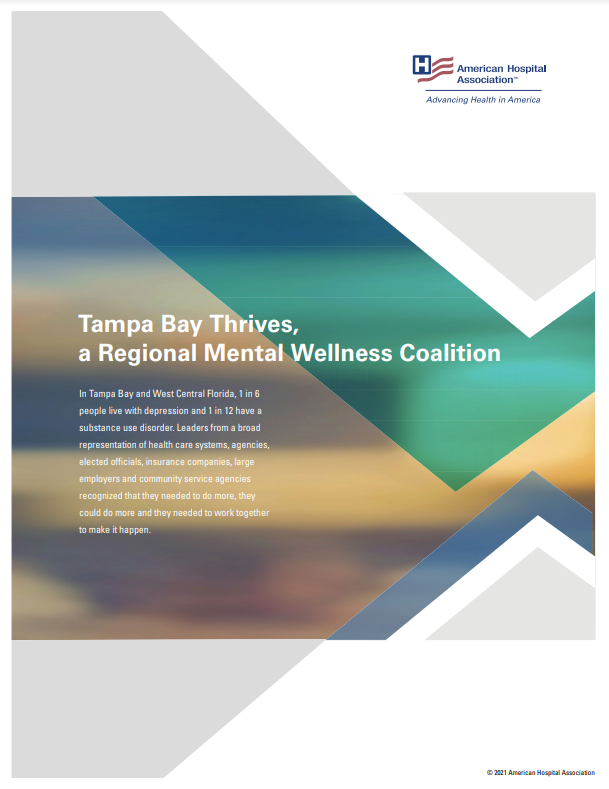Case Study: Tampa Bay Thrives
In Tampa Bay and West Central Florida, 1 in 6 people live with depression and 1 in 12 have a substance use disorder. Leaders from a broad representation of health care systems, agencies, elected officials, insurance companies, large employers and community service agencies recognized that they needed to do more, they could do more and they needed to work together to make it happen.
Executive Summary
In Tampa Bay and West Central Florida, 1 in 6 people live with depression and 1 in 12 have a substance use disorder. Local hospitals and their communities are grappling with record numbers of suicide attempts and overdoses. Florida ranks eighth in the U.S. in prevalence of mental illness and 48th in access to mental health care, according to Mental Health America’s report “The State of Mental Health in America.”
On June 20, 2019, leaders from BayCare along with AdventHealth, HCA Healthcare, Tampa General Hospital, behavioral health providers, law enforcement, government agencies, schools and leading corporations developed a regional mental health initiative called the West Central Florida Mental Wellness Coalition to improve outcomes for depression, anxiety and substance use disorders in the region with a focus on early intervention, access and awareness.
With $5.3 million in voluntary contributions, the coalition shortly thereafter was founded as the nonprofit Tampa Bay Thrives. Immediate priorities focused on:
- Navigation: Improving the ability of those who are seeking help to find the right support
- Behavioral health urgent care: Expanding access to clinicians and services in times of acute need.
- Awareness: Removing the stigma of asking for help.
With a broad representation of health care systems, agencies, elected officials, insurance companies, large employers and community service agencies, leaders recognized that they needed to do more, they could do more and they needed to work together to make it happen. When the pandemic hit and access to behavioral health support became more important than ever, this diverse coalition was able to provide services to address the physical health and mental health needs of the community


